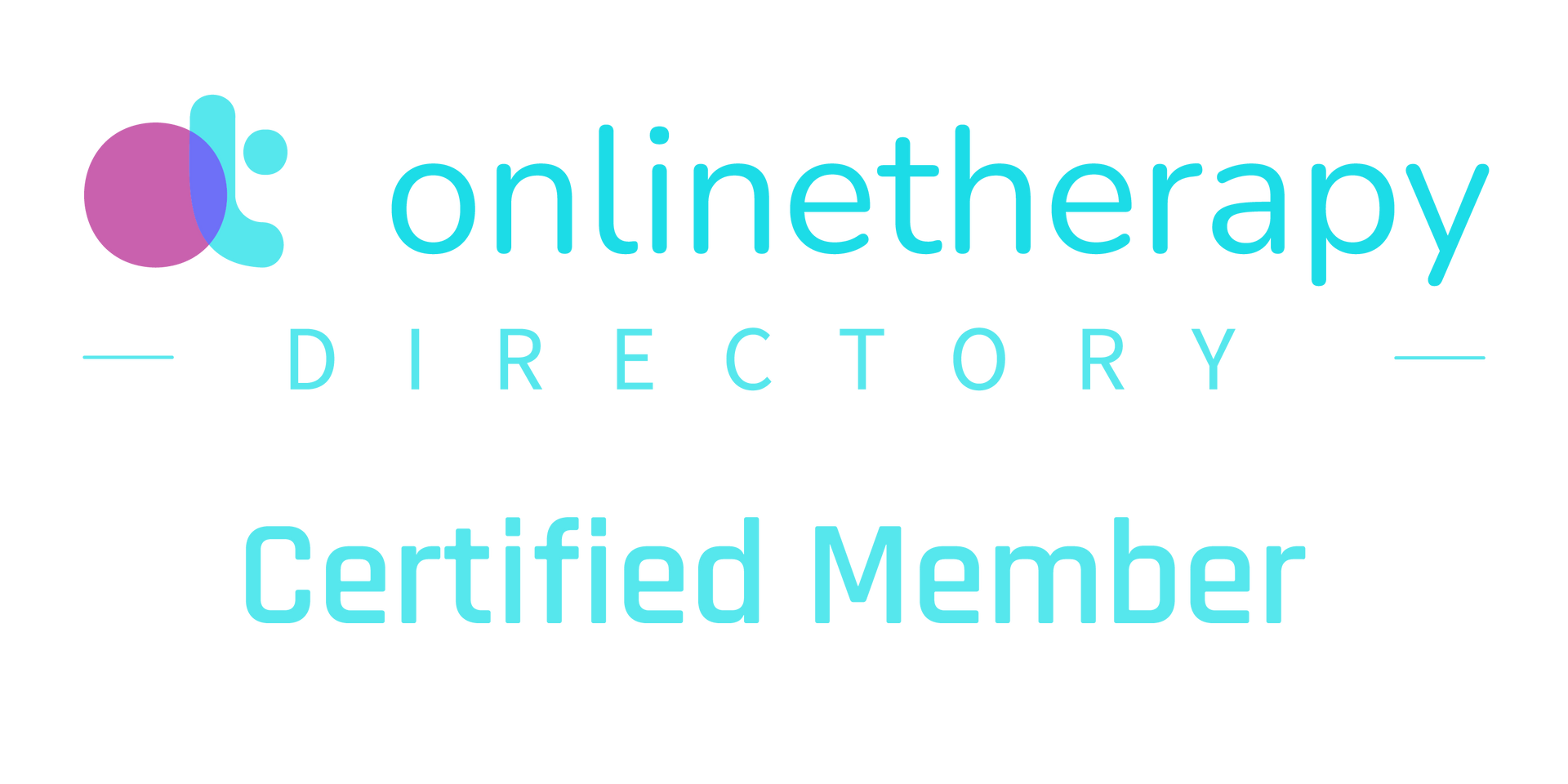Services
Ketamine-Assisted Psychotherapy
About ketamine assistance
Ketamine-assisted psychotherapy can help individuals address a range of issues beyond just symptom relief
Dickson Psychiatric Services helps treat depression, PTSD, anxiety, and other mental health conditions using ketamine-assisted psychotherapy (KAP). In general, we offer two methods for the administration of ketamine.
This type of therapy involves ongoing dialogue and integration with a trained psychotherapist to address underlying attachment, addiction, anxiety, spiritual, somatic, existential, trauma/PTSD, and relationship issues. It's important to note that this type of therapy requires explicit training in KAP for the therapist, as it's different from sitting with a trained therapist in other forms of therapy like CBT, DBT, or EMDR.
We often begin treatment with the administration of ketamine as an intramuscular injection. The second method is the administration of ketamine as an oral lozenge. This allows us to understand your sensitivity to ketamine and is a gentle introduction to the medicine. With both, we provide a dosage gradation that is respectful of the learning experience that is ketamine’s signature as an alternative medicine. We are always interested in you and your experience.


Frequently Asked Questions
As an essential part of the preparation process, clients should be well-informed and have all their questions answered before starting treatment. Ongoing informed consent and collaboration with providers are crucial components of effective treatment.
What is Psychedelic Therapy?
The term "psychedelic" is from the Greek for mind-manifesting. Psychedelics are thought to assist people in connecting to their Inner Healing Intelligence—which refers to the knowledge and power within oneself to move toward wholeness and well-being—to facilitate mental wellness, therapeutic breakthroughs, and insight.
Are Psychedelics legal?
Currently, ketamine is the only legal psychedelic medicine available for clinical use in the state of Minnesota. As more psychedelic medicines become available for clinical use, we may incorporate them into practice.
What is ketamine?
Ketamine is a medication that has long been used safely as an anesthetic and analgesic agent. It is classified as a dissociative anesthetic. Ketamine has been used in surgical settings and pain management since its approval by FDA in 1970. It is now increasingly applied clinically as an off-label treatment for various chronic treatment-resistant mental health conditions, such as depression, anxiety, PTSD, substance misuse and addiction, and other psychiatric diagnoses.
Ketamine was discovered by Cal Stevens of Wayne State University and developed by Parke-Davis (a subsidiary of Pfizer) in 1961. In 1970, it was approved for human use. It was initially marketed as Ketlar and was used as an unusually safe anesthetic. Its use in hospital settings became controversial due to the “emergence syndrome,” a phenomenon involving disorientation and perceptual disturbances when coming out of anesthesia. Some innovative psychiatrists, such as Salvador Roquet, saw the emergence phenomenon as a fascinating principal effect rather than an unwanted side-effect and began using ketamine as an adjunct to psychotherapy. Other psychiatrists, such as Eli Kolp, Evgeny Krupitsky, and Karl Jansen, followed and used high-dose IM ketamine, in combination with psychotherapy, for the treatment of a variety of mental health conditions. In the 1990s, Dr. John Krystal at the Yale School of Medicine used ketamine as a treatment tool to understand and treat schizophrenia. The emergence phenomenon is now understood as a potentially desirable effect to facilitate deeper healing through Non-Ordinary States of Consciousness (NOSC).
In the last two decades, ketamine has been increasingly used as a treatment for various mental health conditions, such as depression, substance use disorder, post-traumatic stress disorder, obsessive-compulsive disorder, and other mental health conditions.
What is Ketamine Assisted Psychotherapy (KAP)?
KAP is a hybrid mental health treatment – drug-facilitated psychotherapy – involving medical and psychological components. We believe ketamine administration is most effective when paired with psychotherapy. Experiential sessions are bookended by preparation and integration services that optimize treatment gains.
We create the conditions for therapeutic change and believe such change is best facilitated within a structured, supportive psychotherapeutic environment with a therapist aware of your issues, hopes, desires, and struggles.
A ketamine treatment session has the potential to elicit non-ordinary states of consciousness and facilitate healing through experiences of profound transpersonal and mystical states. These peak experiences have expanded one’s sense of self and deepened one’s understanding of existence. KAP may also enable you to access your inner healing intelligence in a manner that leads to enduring positive life changes. Your therapist serves as a guide and facilitator of transformational space and assists in processing the experience and its impact.
The KAP protocol varies depending on the presenting problems being treated. The initial intake will involve evaluating your current issues and needs, an evaluation of any health concerns, and the suitability of this treatment for you. We will offer you our clinical impressions and recommendations by the end of the evaluation period. We must consider whether KAP is the best approach for your situation and whether we are the best provider of these services. If indicated, we will make a referral to a more appropriate provider. The goals of therapy are arrived at by mutual collaboration. These goals will be reviewed during our work together to assess and/or modify the treatment according to your needs. Participation in this treatment may result in several benefits, but there is no guarantee that they will occur.
What are the routes of ketamine administration?
Routes of ketamine administration include intravenous, intramuscular, intranasal, and sublingual/buccal. At Dickson Psychiatric Services, we use sublingual/buccal and intramuscular routes of administration. You will have the option of either using compounded ketamine lozenges (self-administered sublingually/buccally and held under the tongue for several minutes) or receiving the medicine via intramuscular injection in the upper arm.
What does a KAP session look like?
On the day of your ketamine treatment, please follow the directions given by the treatment team about food and medication intake. You can plan to spend approximately three hours at the clinic on the day of treatment, although this time may vary.
At the beginning of the session, you and your therapist will clarify your intentions for your experience. We will encourage you to hold these intentions lightly, as resistance or attempts to control the experience can produce anxiety and stand in the way of the experience. We will also discuss the use of music during the treatment session. Music serves to ground and potentially enhance or guide the experience. We provide playlists designed to optimize the benefits of your treatment session. We will maximize set and setting using invocations, meditative practices, and/or breathing exercises to support an open, relaxed, and growth-oriented mindset, reduce anxiety, and ease the transition into non-ordinary states of consciousness.
Once the ketamine is administered, you will be encouraged to use an eye mask to facilitate and enhance the experience and to help you maintain an internal focus. You will spend much of the session “going inside” or focusing on your internal experience. However, your therapist will check in with you periodically throughout your experience and may occasionally ask you questions. You will also have the opportunity to share more once the effect of the medicine has subsided. Your therapist will take detailed notes on everything you share to support recall, insight, and integration.
As the effects of the medicine wear off, you will spend time discussing and integrating your experience with your therapist. In the case that the medicine effects last longer than the allotted time, you will be able to recover in the waiting area until your therapist feels it is safe for you to leave.
Brief self-reporting measures may be sent to you each week to measure your progress in treatment over time.
What can I expect from KAP treatment?
Most clients are referred to KAP by their primary therapists, other medical providers, and/or family or friends who have heard about this innovative treatment. Many of those who are referred have undergone courses of psychotherapy and/or trials of anti-depressant medications without success. Self-referral also occurs, especially in response to recent media coverage of the benefits of ketamine- and psychedelic-assisted therapies.
It should be noted that some individuals struggling with long-term challenging psychological issues may find themselves directed to KAP therapy by way of current media hype. Eye-catching headlines and sound-bite journalism can create unrealistic expectations counterproductive to successful KAP outcomes. KAP is, therefore, sometimes approached with the false notion that ketamine provides a one-off quick-fix mental health shortcut. Some have even incorrectly referred to ketamine as a “happy pill” or a “magic bullet.”
Managing expectations is an important consideration to help protect and promote a productive KAP treatment process.
We recommend defining realistic expectations and identifying achievable goals for symptom relief with your therapist and/or therapy team:
- understanding and cultivating resilience
- understanding and cultivating meaningful engagement and interconnectedness
- developing heightened compassion for oneself and others
- gaining access to a broader range of feelings (i.e., sadness, joy, grief, wonder, inspiration, anger, etc.) than previously available
- developing cognitive and emotional flexibility
- gaining perspective on one’s identity and history
- working through and releasing unhealthy levels of shame, guilt, and self-defeating beliefs
- developing an appreciation of, and tolerance for, ambiguity and uncertainty
- increasing self-awareness
- improving interpersonal communication and relationships
- enhancing creative problem-solving abilities
- improving self-care and healthy habit formation
- decreasing or discontinuing addictive and self-destructive behaviors
It is helpful to foster realistic expectations for KAP's beneficial effects' short- and long-term timeline. Some changes may come in sudden shifts of perspective during a KAP session that may remain long after completion. Also, it is important to note that some of the most valuable KAP influences and insights may evolve slowly with extended integration and reflection. We have found that the benefits of KAP are extended when clients engage in a variety of self-care practices during and after the treatment.
Although ketamine is the catalyst for change, the therapeutic relationship – with mindful reflection, investigation, patience, and integration –is the vehicle of transformation. KAP is best approached with the understanding that developing “a resilient and meaningful life worth living” is an ongoing process.
What are the benefits of KAP?
Participation in ketamine psychotherapy can result in several benefits, but there is no guarantee that this will occur.
The ketamine experience enables your inner healing intelligence to be accessed and guide your process. The psychotherapy relationship will provide safety, support, dialogue, and containment throughout treatment.
Potential benefits of KAP may include improved mood, reduced anxiety, improved stress management, enhanced self-esteem and resilience, reduced hypervigilance and fearfulness, resolution of trauma, increased engagement with life and interpersonal relationships, reduced existential distress, increased mindfulness, decreased compulsive and addictive behaviors, increased self-compassion, and a wider-angle lens perspective on one’s history, identity, and future.
Ketamine therapy is a new and experimental psychiatric treatment, though there are now many studies demonstrating its efficacy. Improvement generally occurs with more than one administration and is most robust when part of an overall treatment program. It may not permanently relieve your condition. If your symptoms respond to ketamine, you may still elect to be treated with medications and ongoing psychotherapy to reduce the possibility of relapse. Over time, you may also need additional ketamine booster treatments or other therapies to sustain benefits.
The literature indicates a 70% initial response rate to ketamine, as well as a remission rate (return of symptoms) for patients with treatment-resistant depression of 40-50%. If you respond with mood improvements after 6 treatments, you may go on to receive additional booster treatments periodically, to be determined by your treatment team.
To read more about the efficacy of KAP for treating depression and anxiety in an outpatient setting, see Phil Wolfson’s in-depth clinical study here.
What does ketamine feel like?
The effects of ketamine change with the dosage, and the dosage is determined based on overall treatment goals and plans. There are some physiological effects that you may experience during ketamine sessions, such as changes in perception and sensitivity to light and sound.
The effects of ketamine can be divided into seven categories: Mindfulness, empathy, out-of-body experience, near-death experience, archetypal/mythological experience, ego-dissolving experience, and mystical experiences. You will most often experience empathogenic and/or out-of-body experiences at the doses we use at Dickson Psychiatric Services.
Empathogenic effects in lower doses may result in increased awareness of the body, feelings of comfort and relaxation, reduction of ego defenses, and increased empathy, compassion, and warmth. This is considered a sub-psychedelic dose and best supports talk therapy as there is more openness and relaxation of defenses.
Out-of-body experiences (OBE) involve complete separation from one’s body and significantly diminished ego defenses but with continued awareness of the self. OBEs may also include mythological/archetypal imagery, visiting non-physical realities, possible encounters with spiritual entities and non-terrestrial beings, vivid dreams of past and future lives and incarnations, and re-experiencing aspects of the birth process.
Near Death Experiences (NDE) involve the experience of complete departure from one’s corporeal and biographical existence, complete ego dissolution/loss of identity, (perceived) death of physical body and identity, reliving/reviewing one’s own life, and merging into the field of collective consciousness.
Ego Dissolving Experience (EDE) is an ecstatic state that can involve the dissolution of boundaries between the self and external reality, complete dissolution of one’s body and sense of self, transcendence of time and space and the five senses, connection to collective consciousness; unity with Nature/Universe; sacredness; feelings of becoming one with God; immersion into an ocean of brilliant white light; deep feelings of love, peace, serenity, joy and bliss; and, a sense of ineffability of the experience.
Following NDEs and EDEs, clients can gain perspective on long-standing psychological and existential issues and begin engaging in their lives and relationships in new, more compassionate, and fulfilling ways.
What are the side effects?
Ketamine has an extensive record of safety and has been used at much higher doses for surgical anesthesia, without respiratory depression. As with any medication, there are also some potential side effects and risks. Our setting and medical monitoring are intended to minimize ketamine’s side effects as much as possible.
Effects of ketamine may include nausea, brief, transient increase in blood pressure, changes in perception and visual, tactile, and auditory processing, feeling suspended in space or floating, and falling sensations. Synesthesia (a mingling of the senses) may occur. Perception of time may also be altered. Other possible adverse effects may include dizziness/lightheadedness, sedation, slurred speech, mental confusion, excitability, diminished ability to see things that are actually present, diminished ability to feel objects accurately (including one’s own body), diminished awareness of physical functions such as respiration, headache, anxiety, and vomiting (although rare).
Due to the risk of nausea and vomiting, patients will be advised to refrain from eating at least 4 hours before a session.
Due to possible blurred and altered vision and impaired balance and coordination, you will be advised to remain lying down and keep your eyes closed (as long as you are comfortable doing so) or use the eye mask provided until the main effects have worn off.
Driving an automobile or engaging in hazardous activities should not be undertaken on the day of the dosing session. You will be assessed for safety before leaving the office.
Repeated, high-dose, chronic use of ketamine has caused urinary tract symptoms and even permanent bladder dysfunction in individuals abusing the drug. This has not occurred in our practice. Neurotoxicity has not been shown to occur in supervised clinical practice; however, in conditions of excessive use over time, mild to moderate cognitive impairments have been noted, specifically regarding memory. While psychological addiction to ketamine has been know to occur in recreational contexts, it is not common in our clinical practice due to lower doses and moderated frequency of administration, psychoeducation about safety, sacredness, and responsible usage, consistent clinical monitoring, and the ongoing trust developed in the therapeutic relationship.
In terms of psychological risks, ketamine has been shown to worsen certain psychotic symptoms in people who suffer from schizophrenia or other serious mental disorders. It may also worsen underlying psychological problems in people with severe personality disorders and dissociative disorders.
Some people report that the transpersonal experiences are bizarre or frightening, while many describe them as pleasurable, joyful, or fascinating. We have found that even frightening or overwhelming experiences can be of great value to the healing process, and pivotal in the resolution of the suffering that brought people to seek treatment in the first place.
You will receive ongoing guidance from your therapist in making the best and most meaningful use of these experiences.
What makes our treatment model unique?
Ketamine is a versatile medicine that can be given in different ways at different doses. Most ketamine clinics offer ketamine infusions intravenously (in an IV) over 30-45 minutes, and there is typically no psychotherapy integrated into the treatment. Providing ketamine in this way works more like taking any other medication for mental illness—the goal is to change your brain chemistry, and it’s not often effective for long-term results. For some patients, this can provide long-term relief after multiple infusions, but for others, the effects wear off once they stop receiving infusions. Other ketamine providers prescribe ketamine in lozenge form for you to take at home, with minimal psychotherapeutic support.
We use ketamine to catalyze psychotherapy and the healing benefits it can provide. We offer the medication in a lozenge or in an intramuscular injection at doses that produce a psychedelic “trip” or “journey” experience that lasts 1.5 to 2.5 hours. An experienced therapist and psychiatric mental health nurse practitioner is with you the entire time to support you and cultivate an ideal environment for safety, growth, and healing.
After your journey, we provide psychotherapy to help you integrate and make meaning of your experience and move you toward your goals for symptom relief and behavior change. Through subsequent journeys, we help you work toward lasting change by healing the root causes underlying your mental health challenges. We cannot emphasize enough the healing potential of this medicine when combined with a safe, supportive psychotherapy experience.
What if I have a bad trip?
Difficult psychedelic experiences (aka bad trips) are possible during KAP. The beauty of these medicines is that they can amplify what we are experiencing and, in turn, help us connect more deeply with what needs healing. Shifting beliefs and our understanding of ourselves break us from old thought patterns and lead to new insights. This experience can also feel destabilizing. This is why therapy is so important. Trust and feelings of safety within the therapeutic relationship provide the container to lean into these shifts with compassion and curiosity. We recognize that a challenging experience may arise, and we are prepared to support you. It is hoped that this information will assist you in surrendering and permitting whatever needs to surface as an integral part of your healing journey.
How fast does ketamine work?
Ketamine has a rapid onset and is a short-acting, powerful psychedelic with the potential for transformative experiences.
Regarding the acute effects of ketamine, with sublingual/buccal administration, it generally takes about 10 – 15 minutes to begin feeling the effects, which then subside in about 60 – 90 minutes. With intramuscular administration, it typically takes 3 – 5 minutes to start feeling the effects, which then subsides in about 45 – 60 minutes.
This onset of anti-depressant effects typically occurs within 24 hours and has been known to last up to 2 weeks. Ketamine administration has been shown to interrupt acute suicidal ideation in some patients effectively. Repeated administrations over a short time tend to result in more durable and clinically significant effects.
KAP is a non-linear process, and relief from symptoms may wax and wane before stabilization of gains is achieved. The effectiveness of treatment can typically be assessed within a few sessions, although with some clients with more complicated psychological conditions, a longer course of therapy may be needed.
How many sessions will I need?
This process differs for everyone and requires a collaborative dialogue among you, your therapist, and your psychiatric provider. Nevertheless, there's a general rhythm to the approach, as follows:
- Assessment: We always start with a thorough psychiatric and medical evaluation with our psychiatric nurse practitioner; a mental health evaluation with a PURE Therapy therapist may follow this.
- Preparation Therapy: Then we do as many preparation sessions as you need to feel equipped for your medicine experience. Most people do 3-6 preparation sessions.
- Active Medicine experience: Your first medicine experience will be tailored to finding the right dose to determine how you respond to ketamine.
- Integration Therapy: every medicine session will be followed by integration with the PMHNP or PURE Therapy therapist. This is usually 3-6 sessions.
The number of sessions is individual and depends on overall treatment goals and responsiveness to the treatment. Some patients benefit from only one session, while many benefit from a series of 3-6 sessions, and some come for more ongoing “booster sessions” intermittently over months or years.
Current research on ketamine infusion treatment shows that 70% of patients with treatment-resistant depression respond positively to 1-3 administrations, and 30-60% report some remission of their depression symptoms for varying lengths of time. With repeated sessions, there is a cumulative beneficial effect.
Is ketamine addictive?
Ketamine is a controlled substance and is subject to Schedule III rules under the Controlled Substance Act of 1970. Medical evidence regarding the issue of drug abuse and dependence suggests that ketamine does have some abuse potential. Ketamine can have effects on mood (feelings), cognition (thinking), and perception (imagery) that may make some people want to use it repeatedly. Ketamine has been known to be a drug of abuse in recreational settings. However, in clinical practice, given the limited access, psychoeducation of responsible use, and close monitoring, problems with the abuse and diversion of ketamine are rarely seen.
Because of its potential for abuse or psychological addiction, ketamine should never be used except under the direct supervision of a qualified licensed healthcare provider such as a psychiatric nurse practitioner or physician.
How is music used in KAP sessions?
Music is an essential component of the KAP experience. We use curated music playlists to synergize with the effects of the medicine and support the therapeutic process. Ambient, atmospheric tracks are carefully selected to help patients deepen into the meditative state of mind and surrender to the experience.
You can listen to one of our public playlists on Spotify here:
Dr. Todd Dickson Spotify Public Playlists Ketamine Assisted Psychotherapy
How much does Ketamine-Assisted Psychotherapy (KAP) cost?
We are in-network with most major insurance plans, so for individuals with medical insurance, much of the therapy process may be covered by your insurance. This may include talk therapy (preparation and integration sessions), psychiatric and medical evaluation, and therapist assessment.
While the above is often covered by insurance, the actual ketamine experience (the treatment session) is not covered, as it cannot be submitted to or reimbursed by insurance. That is an out-of-pocket service that covers the therapist's additional time required for medicine sessions and monitoring by the psychiatric provider.
That cost is $800 for the first active medicine session, and then $600 for each subsequent active medicine session
*We accept FSA and HSA for costs not covered by insurance, including KAP treatment sessions.
You are ultimately responsible for knowing about your insurance plan and what out-of-pocket fees you may have, e.g. co-pays, co-insurance fees, and/or deductible fees. Your unique insurance plan determines your individual rates/fees.
Please contact us for more information about insurance plans that may be in network, if you'd like to know which insurance codes we use so you can inquire about coverage with your insurance, or if you have other questions.
We truly offer a unique experience that differs from typical ketamine intravenous clinics. We do not administer ketamine as a drug in a medical setting for a 50-minute session with a needle in your arm. Ketamine’s extraordinary record of safety with proper use makes for our ability to serve you in a comfortable setting conducive to your having profound and life-changing experiences. We provide a therapeutic process that fosters healing and opens your mind and heart.
Them vs. Us
Them
- Many IV ketamine providers require clients to attend the office and complete six sessions.
- The treatment is predominantly administered by nurses who lack training in the consciousness aspects of the ketamine experience.
- They subsequently charge patients accordingly.
- No one is present to help you process your experience and integrate it into your existence.
The Dickson Team
Typically, we will assess your progress following your initial in-office appointment, and the frequency will be contingent upon the individual.
We cannot predict in advance the number or frequency of sessions. This is dependent on you, your needs, the severity of your difficulty, and your response to ketamine and therapy.
- The “gold standard” protocol for ketamine administration for mental health treatment is 0.5-1.5 mg/kg. A single session may suffice for specific individuals; however, most individuals require 2-3 medicine sessions to progress toward their treatment objectives by expanding upon each session.
- For others, a plan may be developed for a course of treatment (sometimes 6 medicine sessions) or ongoing maintenance support.
- This all depends on your needs, presenting concerns, and the effectiveness of each experience.
- Booster sessions may be necessary after the induction phase, ranging from 2-12 weeks.
- We schedule integration sessions (as necessary) to amplify and support the therapeutic gains clients get from their KAP sessions.
- We maintain a high level of availability and support.
- We view therapy as a crucial part of our overall process.
- Dore, J., Turnipseed, B., Dwyer, S., Turnipseed, A., Andries, J., Ascani, G., Monnette, C., Huidekoper, A., Strauss, N., & Wolfson, P. (2019) Ketamine Assisted Psychotherapy (KAP): Patient Demographics, Clinical Data and Outcomes in Three Large Practices Administering Ketamine with Psychotherapy, Journal of Psychoactive Drugs, 51(2), 189-198.
- Drozdz, S. J., Goel, A., McGarr, M. W., Katz, J., Ritvo, P., Mattina, G. F., Bhat, V., Diep, C., & Ladha, K. S. (2022). Ketamine Assisted Psychotherapy: A Systematic Narrative Review of the Literature. Journal of pain research, 15, 1691–1706. https://doi.org/10.2147/JPR.S360733
- Grob, C. & Grigsby, J. (2021). Handbook of Medical Hallucinogens. New York: The Guilford Press.
Each KAP session tends to last about three hours. The duration of the recovery period varies depending on your response to the medicine. You are only released to travel once it is safe to do so, and you will need to arrange for transportation home.
We strongly believe in the healing power of human relationships and the therapeutic potential of non-ordinary states of consciousness (NOSC). Ketamine-assisted psychotherapy holds enormous reparative potential by combining therapeutic elements and the biological benefits of ketamine.
Supporting Your Mental Health Together
At Dickson Psychiatric Services, we’re here to help you on your journey to wellness. Request an appointment today, and take the first step towards a brighter tomorrow!




